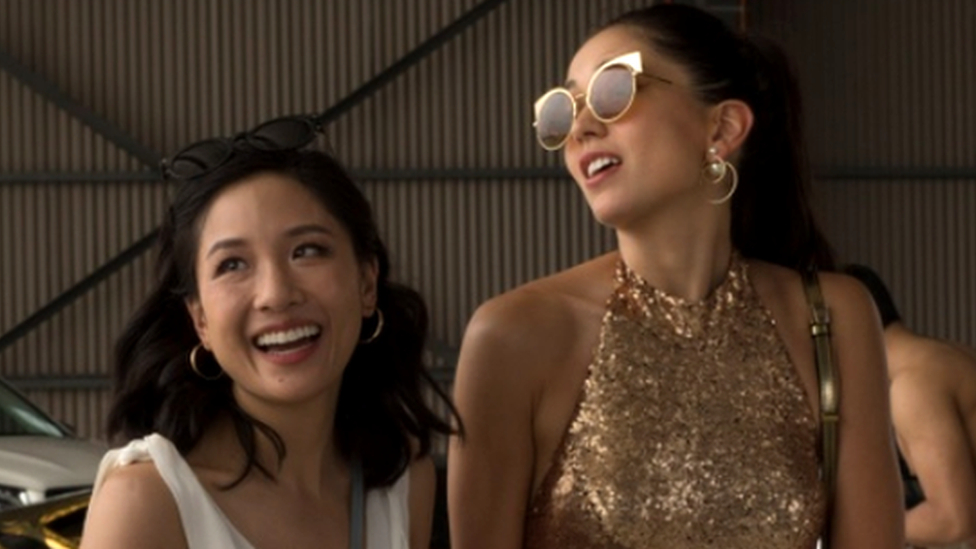Oscars 2023: Michelle Yeoh eyes a victory for 'unseen' Asian communities
- Published
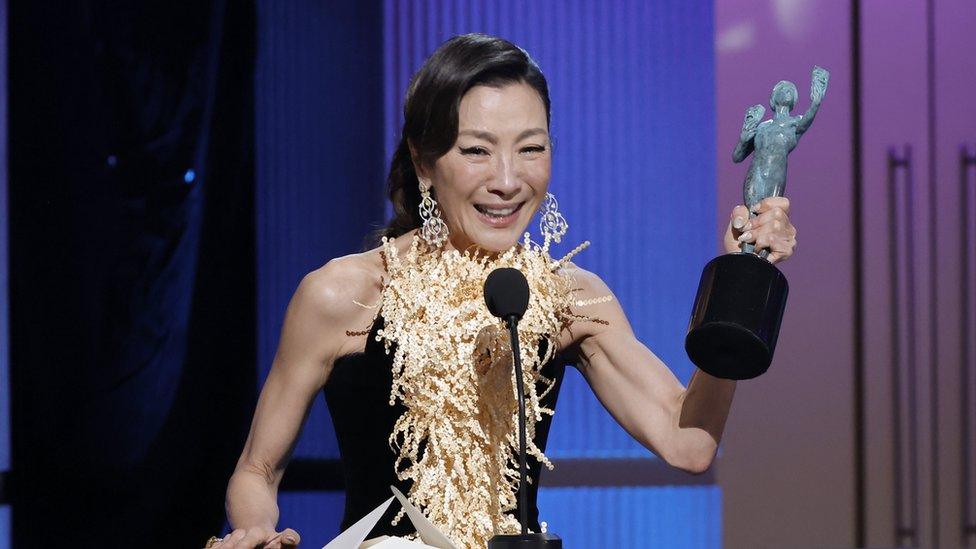
Michelle Yeoh recently won best actress at the SAG Awards
"Is it that I can't be here or that I'm not allowed to be here?" Jobu-Joy asks in the hit film Everything Everywhere All at Once.
The wry, subversive question from the film's antagonist - who is hellbent on ending the world in which she feels unwelcome - sums up actress Michelle Yeoh's Hollywood journey.
Yeoh is, of course, the film's unlikely superhero - Evelyn Wang, a Chinese-American immigrant and laundromat owner who is swept into a multiverse.
The role, she says, is a reflection of the battles she's fought to be recognised in Hollywood - much like the question posed by her nemesis.
"You want to have that seat at the table, so you can have the privilege to be seen and heard," Yeoh tells the BBC in an interview over Zoom. "What I'm asking for is the privilege to compete."
"Even from the day [Evelyn Wang] was born, her father says she's a failure, because she was born a girl. It's been a long time since I've read something that resonated so deeply with me."
Yeoh's portrayal of Wang has stormed this year's awards season. After winning at the Golden Globes and the Screen Actors Guild awards, she is now poised to make history at the Oscars.
"I'm very aware that it's beyond me being recognised as an actress. It's a whole community of Asians coming forward and saying: You have to do this for us."
"Asians tend to not show so much emotion. And I think maybe it's a misconception that we don't need our stories told, which is not true," she says. "It's how we tell the story that makes a difference. The audience wants Hollywood to reflect the global community."
Before her Hollywood success, Yeoh was already an A-lister in Asia.
She was born in Ipoh, Perak, in Malaysia, and attended the Royal Academy of Dance in London in her teenage years. A back injury cut short her dance career - but her training was not in vain as it helped her perform her own stunts in movies, for which she later became famous.
After winning the Miss Malaysia pageant, she started filming movies in Hong Kong and shot to fame with Yes Madam! in 1985. She played a police inspector and the movie was so successful that it inspired many other Chinese-language action films featuring female leads.
"I got myself into action films because I didn't believe that women were damsels in distress. Their stories need to be told correctly," Yeoh says.
Cody Foo, who was neighbours with Yeoh in Ipoh when he was five, says: "I remember my mum wanted to hang out with her all the time. I knew she was important because my mum would call her Aunty Michelle Yeoh, not Aunty Michelle. I remember asking to play with her keychain once and she let me, happy that it kept a child occupied while she chatted with my mum. She was basically like any other Aunty."
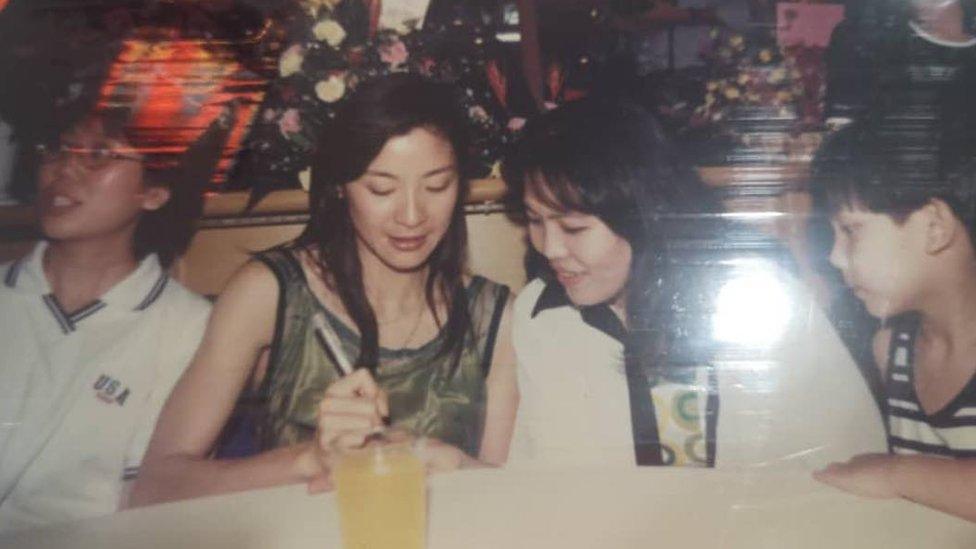
Cody Foo and his mother with Michelle Yeoh in 1996
Her success has left an indelible mark on many Malaysians like Cody, now a 33-year-old recording artist in the country.
"It is difficult to even imagine what success looks like for us minorities in the creative field, until Michelle Yeoh showed me that I could," says Foo.
"In 1996, we went down to support her at the opening of her restaurant. Shortly after that, she left Malaysia to shoot the Tomorrow Never Dies and I never saw her again," he says.
Yeoh landed her first major Hollywood role in the James Bond film, alongside Pierce Brosnan. She played a capable Chinese spy - a radical departure from the usual "Bond girl" - at a time when roles were deeply stereotyped for minorities and females.
In an interview with Elle magazine, she had said when she first got to America, people thought that if they spoke more slowly she would understand them better.
"They were shocked that I spoke English," she says, still visibly perplexed at the memory. "I didn't understand what was happening."
"Being called a minority didn't register with me. I come from Malaysia, and we are a multiracial society, and have always embraced each other's differences," she adds.
Her refusal to play submissive characters or be relegated to a mere accessory to male leads meant fewer roles. But slowly that changed.
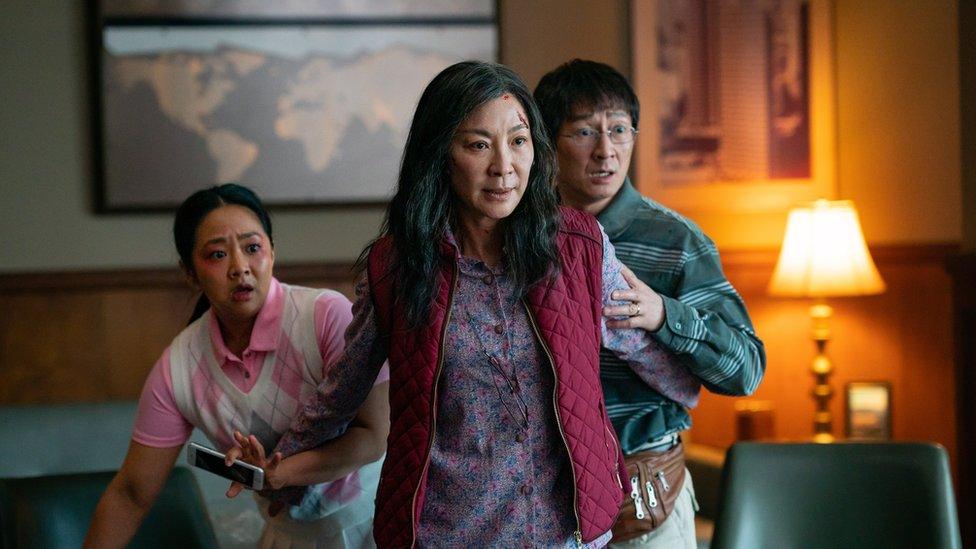
Everything Everywhere All at Once has a predominantly Asian cast
"The world has evolved, and there are other markets that will keep growing. That is good for Hollywood because it will show them that they have to evolve and be better," says Yeoh.
But even now, it's not just racial stereotypes she has to contend with.
"I think many of us, especially women, understand that as you age, you get put in certain boxes. As an actress, your roles get smaller and more insignificant," she says.
"We have male actors in their 60s or 70s playing superheroes saving the world. But God forbid, why is it that a woman can't do that?"
Yeoh's Hollywood breakthrough role came in 2018 when she was cast as matriarch Eleanor Young in the romantic comedy Crazy Rich Asians - which also has a predominantly Asian cast.
She credits her success to young directors and storytellers: "So I depend on the next generation of forward thinkers like the Daniels, to be bold enough to write this script about a very ordinary woman who's given an opportunity to be a superhero."
"They make their own opportunities. They create their own doorways. I wish I was a writer, then I would've written a lot of my own scripts," she adds.
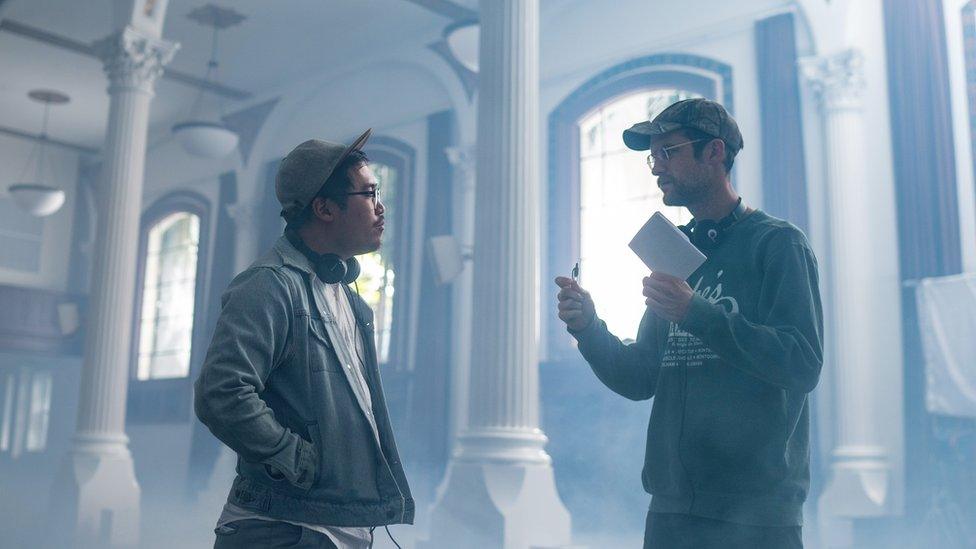
Directors Daniel Kwan and Daniel Scheinert on the set of Everything Everywhere All at Once
Everything Everywhere All at Once was a huge risk for her, her friends and colleagues said.
"But life is all about taking risks. If not, you'll be doing the same thing over and over again."
"I think the Asian community has felt so unseen for such a long time. But the sea of change is happening. It's taken time, and I am only grateful to see it," she says.
Perhaps it's fitting that Michelle Yeoh, a stalwart of Asian cinema, is the first woman who identifies as Asian to receive an Oscar nomination, possibly proof that everything is changing. But maybe not everywhere. And certainly not all at once.
MIchelle Yeoh on her Oscar 2023 nomination
Related topics
- Published27 February 2023
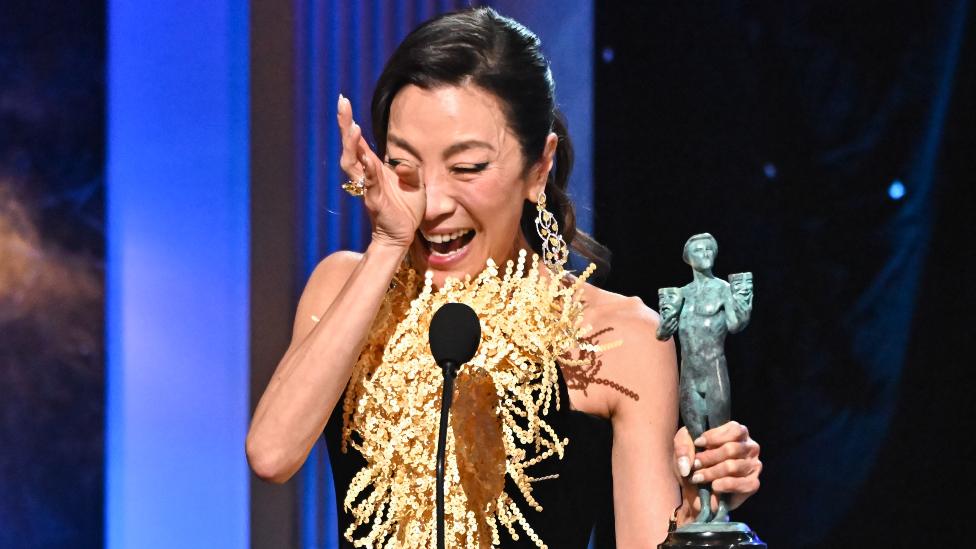
- Published9 February 2023
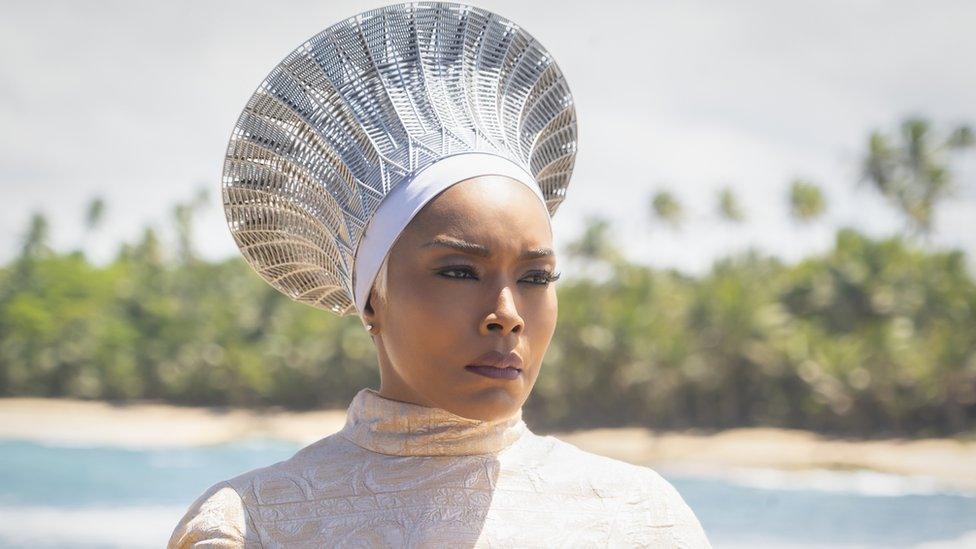
- Published25 January 2023
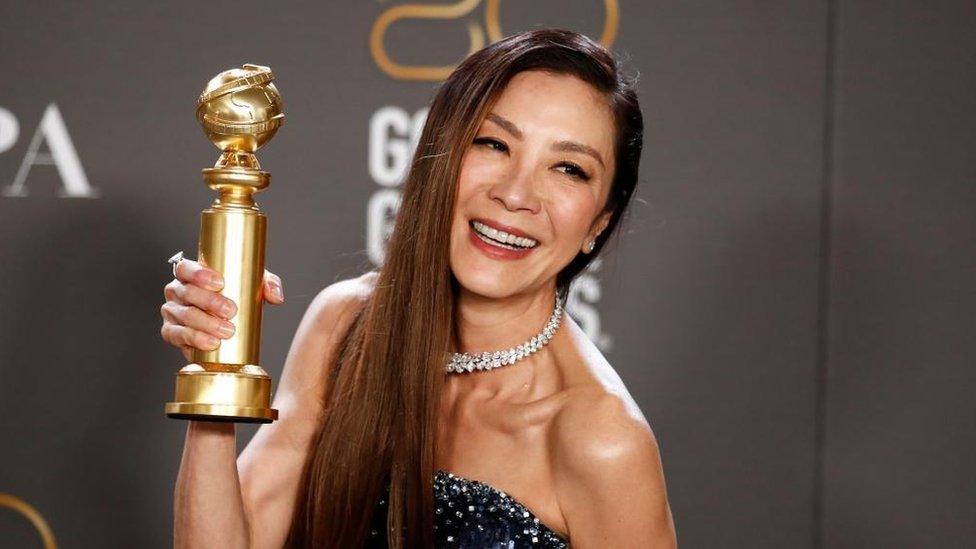
- Published11 January 2023
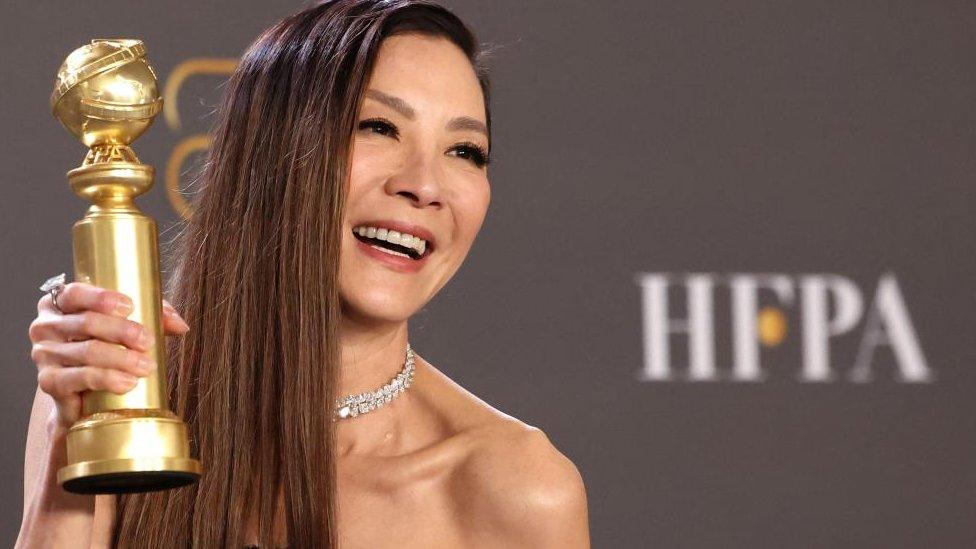
- Published24 November 2020
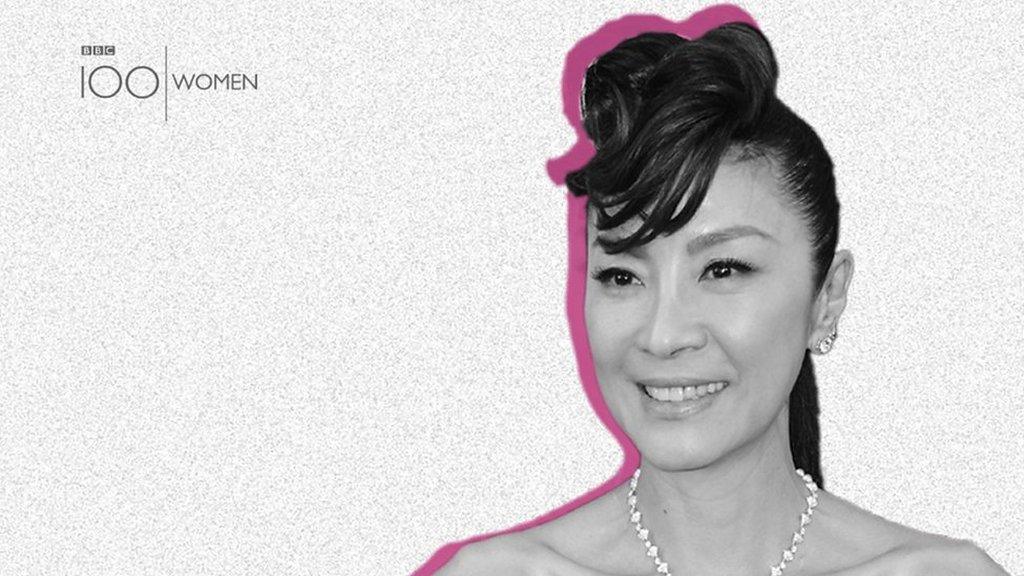
- Published18 August 2018
